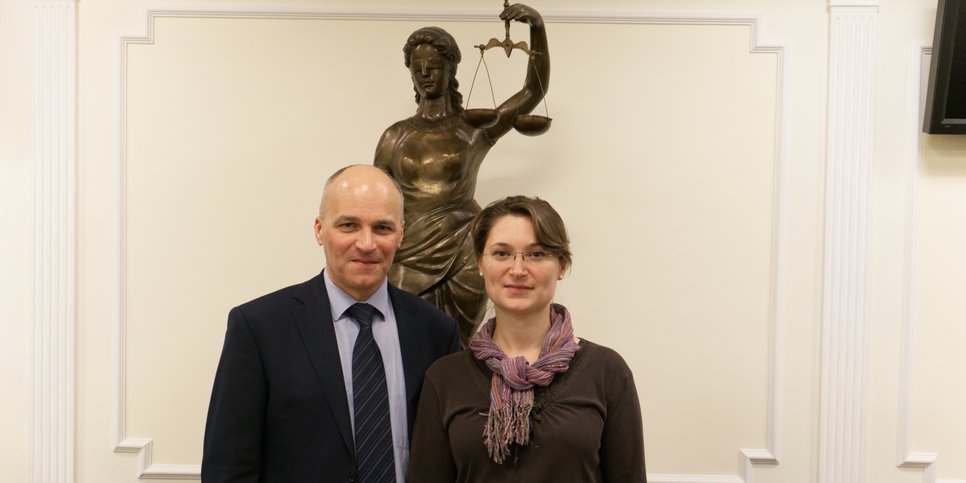Sergey and Anastasia Polyakov
Sergey and Anastasia Polyakov
The Supreme Court of Russia Partially Granted the Appeal of Four of Jehovah's Witnesses From Omsk. One of Them Has Already Served a Full Prison Term for His Faith
Omsk RegionOn January 11, 2023, the Supreme Court of Russia considered the cassation appeal of Jehovah's Witnesses against the guilty verdict in the extremism case handed down on November 30, 2020, in Omsk and granted the part related to revising the sentence served by Sergey Polyakov.
More than two years ago, the Pervomaisky District Court of the city of Omsk sentenced Polyakov to three years in a general regime penal colony, and three women were given a suspended sentence: Anastasiya Polyakova—two and a half years; Gaukhar Bektemirova—two years and three months; Dinara Dyusekeyeva—two years. In May 2021, the appellate court upheld the verdict, and a year later this decision was upheld by the Eighth Court of Cassation of General Jurisdiction in the city of Kemerovo. In November 2022, Sergey Polyakov was released after serving his full term in a penal colony.
However, the believer should have been released forty five days earlier than he actually was. The courts considered the period of Polyakov's detention under house arrest, equating one day of house arrest to a half day of detention in a penal colony. But this law was not adopted in Russia until after 2018, that is, after the date when, according to the investigation and the court, Sergey Polyakov committed the crime. In his case, one day of house arrest should have been equated to one day in a penal colony.
The Supreme Court of the Russian Federation granted part of Sergey Polyakov's appeal related to the revision of the term of his sentence, and now he has the right to monetary compensation, which he can already claim in a civil procedure.
The believers also asked the Supreme Court to cancel the verdict of the court of first instance as well as the appellate ruling of the judicial panel and to transfer the criminal case for a new trial. They still plead not guilty, arguing that they exercised their constitutional right to freedom of conscience and religion and that their actions were exclusively peaceful.
The cassation complaint mentions a number of violations discovered during the hearings in the court of first instance (the disappearance of physical evidence and the lack of measures taken to search for it, as well as the court’s refusal to add to the criminal case evidence that confirms the use of violence against Polyakov during the search and the planting of prohibited religious literature by security forces in places of worship of Jehovah's Witnesses, etc.). During the first instance court hearings, the prosecution did not cite a single statement by Polyakov aimed at inciting religious hatred, nor did it provide any evidence to support such statements. These arguments were not taking into account by the Supreme Court of the Russian Federation.
On June 7, 2022, the European Court of Human Rights fully acquitted Jehovah's Witnesses in Russia and ruled that Russia stop persecuting them for their faith. Although Russia ceased to be a member of the Council of Europe in March 2022, in terms of international law, it is obliged to comply with the decisions of the ECHR issued before September 16, 2022.




